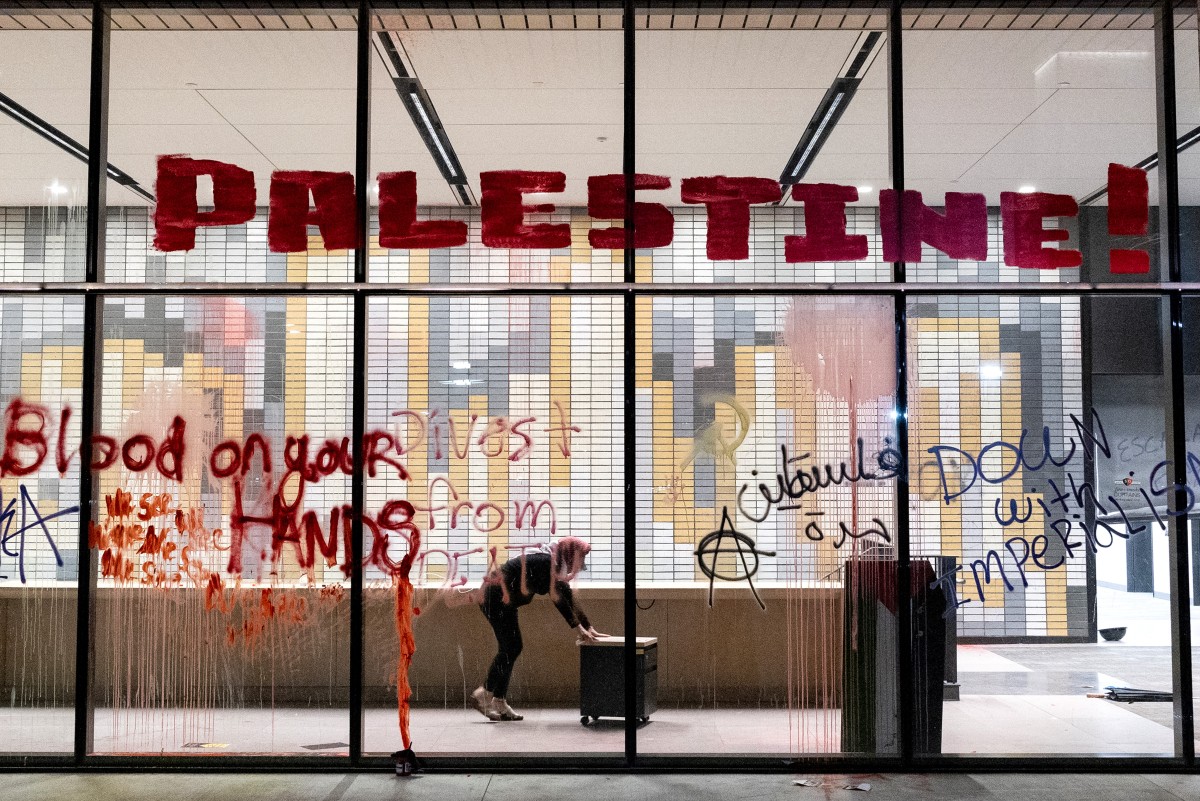Palestinian Territories — Eight Israeli soldiers were killed in a blast in southern Gaza Saturday, the military said, in some of its heaviest losses of the war, as witnesses reported street battles between troops and Hamas.
The military said the soldiers were killed when the Namer armored vehicle they were travelling in exploded near Gaza’s far-southern city of Rafah, where troops are engaged in fierce street battles.
There was no immediate word on what triggered the blast.
Saturday’s losses were among the heaviest for the military since it began its ground offensive in Gaza on October 27 and took its overall losses since then to 306.
In the single largest loss of life for the army, 21 soldiers were killed on January 22 when rocket-propelled grenade (RPG) fire hit a tank near two buildings they were preparing to blow up.
In Rafah, witnesses reported clashes between Hamas and Israeli troops in the city’s west, and artillery fire towards a refugee camp in the city center. AFPTV images showed streets largely deserted.
The United Nations says about one million people have fled Rafah since early May, when Israel began ground operations in the city in pursuit of Hamas.
In Gaza City, in the north of the territory, the civil defense agency reported recovering 10 bodies from three separate homes hit by Israeli strikes.
Lebanon border flare-up –
Israel’s offensive has killed at least 37,296 people in Gaza, also mostly civilians, according to the health ministry in Gaza.
Fears of the war spilling over into a broader Middle East conflict have been rekindled in recent days by an escalation of tit-for-tat violence between Israel and Lebanese militant group Hezbollah, a Hamas ally.
Hezbollah said intense strikes since Wednesday were retaliation for Israel’s killing of one of its commanders.
Israeli forces responded with shelling, the military said, also announcing air strikes on Hezbollah infrastructure across the border.
The armed wing of Palestinian group Islamic Jihad said one of its fighters had been killed in south Lebanon on Saturday.
Ceasefire plan –
During a Middle East trip this week to push a Gaza truce plan, US Secretary of State Antony Blinken said “the best way” to help resolve the Hezbollah-Israel violence was “a resolution of the conflict in Gaza and getting a ceasefire”.
That has not happened.
Hamas has insisted on the complete withdrawal of Israeli forces from Gaza and a permanent ceasefire — demands Israel has repeatedly rejected.
Blinken has said Israel backs the latest plan, but Prime Minister Benjamin Netanyahu, whose far-right coalition partners are strongly opposed, has not publicly endorsed it.
The Gaza war’s only truce, one week in November, saw more than 100 hostages released, the Israelis among them in exchange for Palestinian prisoners.
‘People want this war to end’ –
World Food Programme deputy executive director Carl Skau said that “with lawlessness inside the Strip… and active conflict”, it has become “close to impossible to deliver the level of aid that meets the growing demands on the ground”.
“More than anything, people want this war to end,” he said after a two-day visit to Gaza.
The US military said a pier it built to help bring aid into Gaza would be temporarily moved to an Israeli port to protect it from expected high seas.
The platform had only been reattached to Gaza’s shore a week before, after storm damage.
Leaders of the G7 group of advanced economies called at a summit in Italy Friday for the “rapid and unimpeded passage of humanitarian relief for civilians in need”.
They also said the UN agency for Palestinian refugees, UNRWA, should be allowed to work unhindered in Gaza.
Israel had accused 12 of the agency’s 13,000 Gaza staff of involvement in the October 7 attack, prompting several donor governments to suspend their contributions.
An independent review said Israel had failed to provide evidence to support its allegations.








